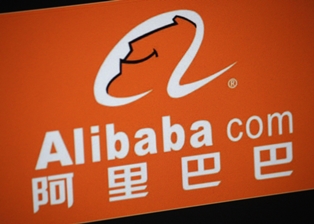Alibaba Group Holding Ltd. (NYSE: BABA) and BABA stock have long been compared to Amazon.com Inc. (Nasdaq: AMZN) and eBay Inc. (Nasdaq: EBAY), but according to Money Morning's Executive Editor Bill Patalon, those comparisons are way off.
In fact, Patalon says Alibaba is actually more like Wal-Mart Stores Inc. (NYSE: WMT) the retail giant that has made its initial investors incredibly wealthy since it went public in 1969.
And that's excellent news for BABA shareholders, because WMT is one of the greatest "legacy" profit stories in U.S. history...

The Power of "Legacy" Profits
Amazon and eBay both came to power in the 1990s, a time when the U.S. middle class was well established. The retail shoppers were already there, these companies simply brought them online.
Wal-Mart, on the other hand, rose to power in the 1970s and 1980s at exactly the same time that the American middle class was burgeoning.
WMT stock has had 11 two-for-one stock splits since it went public in 1970, meaning someone who purchased 100 shares at the IPO would now own more than 204,000 shares. The shares were first offered for $16.50 each, and opened today at $77.03.
Therefore, an initial investment of $1,650 in WMT stock would be worth more than $15.8 million today.
"Those are legacy profits - the kind of money that will make your family name immortal - and that will have your great-great-grandkids celebrating your birthday, your anniversary, and your favorite color," Patalon said.
Now, Alibaba stock is poised to create its own legacy profits, because it's seeing the type of consumer base growth that Wal-Mart profited from...
BABA and Perfectly Timed Market Growth
Online-shopping in China was a $298 billion industry in 2013, easily surpassing the $263 billion that was spent in the United States last year. That made China the top e-commerce market in the world. According to the research firm yStats, China's consumer e-commerce market soared more than 60% in 2013.
According to Ilya Grozovsky, SPQR Capital's equity analyst, there are already twice as many Internet users in China as there are in the United States. However, there are many more Chinese citizens who aren't online yet.
"There's another two United States of Americas waiting to get online over there," Grozovksy told The New Yorker.
According to the China Internet Network Information Centre (CNNIC), the number of Internet users in the country will hit 800 million by 2016 or sooner.
Alibaba was founded in 1999, and truly hit its stride this year as the company prepared for the largest IPO in history. In 2013, 80% of all online transactions in China took place over one of Alibaba's websites.
"If the China market - and middle-class buying patterns there - develop along the same patterns and to the same degree as they did here in the U.S. market, Alibaba could well develop into the same kind of powerhouse that Wal-Mart was for so many years," international marketing expert and a professor emeritus for the Rochester Institute of Technology, Dr. Eugene Fram told Patalon. "It's not a given that this will happen. Third World consumers don't necessarily follow the patterns of their U.S. counterparts. If they do, it could be powerful."
But it isn't just the Chinese consumers who make BABA stock a legacy profit play. The Chinese government is determined to make China a world power when it comes to e-commerce...
China's Massive Growth Plan
Patalon has been analyzing the markets for over 30 years, and he was posted in China and Japan back in 1996 on a special investigative report. He's also spent time in Vietnam working for the country's shortwave-broadcasting service Voice of Vietnam. So he's had a lot of first-hand experience seeing how Asian economies work.
And he's been watching as China's leaders craft long-term plans to boost the country's e-commerce industry.
"In China's 'E-Commerce 12th Five-Year Plan For 2011-2015' (that's what it's called), the Ministry of Industry and Information Technology focused on making China a true global powerhouse in e-commerce - and I mean a bona fide worldwide leader in this digital transactional realm," Patalon said. "And that plan contains a very interesting element - something I believe is destined to benefit Alibaba in a major way."
"Beijing wants China to be a global leader in e-commerce," Patalon continued. "But it's also trying to shift the overall economy away from its export-driven roots into a market that's driven by domestic consumer spending - more like what we have here in the United States."
"You'll start to see policies that are conducive to consumer spending, and to e-commerce. That's obviously really good for companies like Alibaba, because it means they'll have Beijing's backing."
This is a movement that Patalon has been tracking all year. In fact, he clued readers into the profit potential of Alibaba stock months before the famous IPO. Since the deal, BABA shares are already up 31% from their $68 offer price.
Fortunately, investors who missed out on those initial gains can still profit from BABA, because this stock is just getting started. Alibaba has a market cap of $225 billion right now, but Patalon sees a scenario where that figure climbs much higher.
"We've made the argument that Alibaba could become the world's first true $1 trillion (market value) company. And that's just for starters."
More from Patalon: Former Fidelity Magellan Fund manager Peter Lynch used to tell investors to "buy what you know." It's good advice, and following it can help you add easy "muscle" to your returns...
[epom key="ddec3ef33420ef7c9964a4695c349764" redirect="" sourceid=""]


